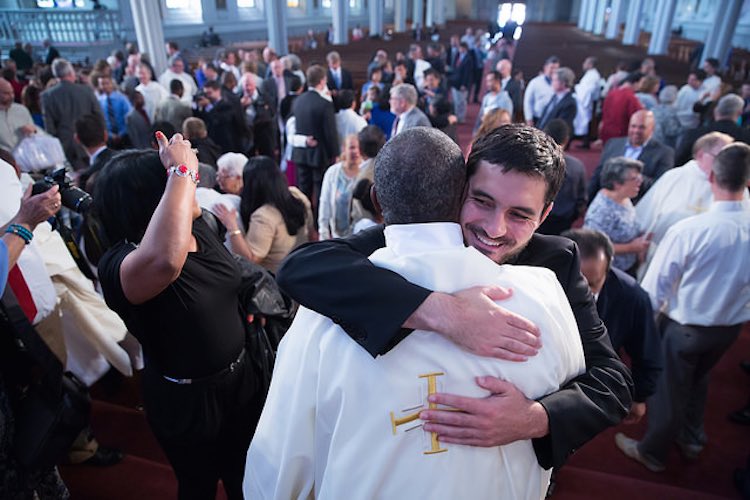No man is an island – no matter how much money you have.
This new study from Princeton University finds that low-income individuals who trust their communities make better long-term financial decisions. This is likely because citizens rely on friends and neighbors for financial support, rather than quick fixes, like payday loans, which further digs them into debt.
RELATED: Donated Laptops Are Flying Right Into Laps of African Entrepreneurs
“Instead of cutting funding to community development programs, policymakers should implement changes that give individuals in low-income communities more opportunities to develop community trust,” said study co-author Elke Weber, professor of psychology and public affairs at Princeton University’s Woodrow Wilson School.
To determine why low-income individuals tend to make more myopic (or short-term) financial decisions, the researchers conducted a series of studies, focusing on both the United States and Bangladesh.
In the first study, the researchers invited 647 participants from the United States to make several choices between “smaller, sooner” and “larger, later” options, taking into account participants’ incomes and how much they trusted their local communities. They found that richer participants were generally less likely to make harmful short-term decisions than those with lower incomes, but that this only applied to low-income individuals who did not trust their communities. In contrast, those low-income individuals who trust their communities more made financial decisions that were very similar to those made by richer participants.
MORE: Major Milestone For Church Group That’s Built 500 Homes In Haiti
“Current financial dilemmas are stressful and leave people with no option but to choose immediate solutions. Our results indicate that lower-income people are less likely to invest in the long-term because of their immediate financial needs,” said Weber. “This is in line with work by Princeton’s Eldar Shafir and others: that scarcity leads to harmful long-term decision-making.”
In the second study, the researchers evaluated “payday loans” in the United States, which carry high interest rates and exacerbate cycles of poverty among the poor. After reviewing the Federal Reserve Board’s Survey of Household Economics and Decision-making, the researchers found that fewer payday loans were taken out in communities where levels of trust were higher. This is because individuals can rely on their communities to help with financial needs (taking out a loan from a friend, for example), instead of resorting to high-interest emergency loans, the researchers said.
CHECK OUT: Woman Changes Homeless Man’s Life After He Stood on Same Street Corner for 3 Years
In the final part of the study, the researchers turned their attention to Bangladesh, where they conducted a two-year field study. Together with BRAC and The Hunger Project, a global nonprofit organization, the researchers worked with 121 of Bangladesh’s smallest local government units, known as council unions. They trained community volunteers to act as intermediaries between local government and community residents. Volunteers met with members of their community and helped provide them with access to public services. Volunteers also provided guidance to government units directly.
When comparing the unions with community volunteers to those without, the researchers found the two groups differed widely in their levels of community trust. Residents with community volunteers had higher levels of community trust, which also influenced their decision-making. These individuals were more likely to forgo smaller payoffs in exchange for more-profitable, delayed options.
(Source: Princeton University, Woodrow Wilson School of Public and International Affairs)
Click To Share The News With Your Friends (Photo by Boston Catholic, CC)




















